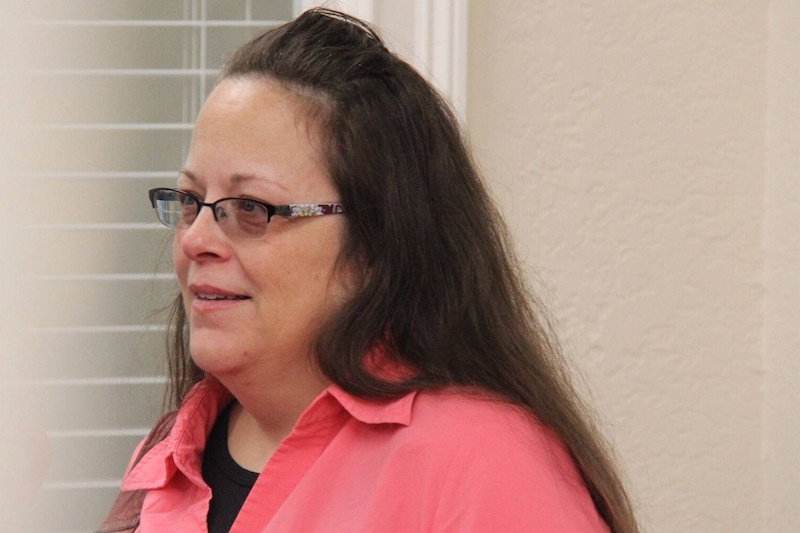Refusing Trans Insurance Coverage is Unlawful, Court Rules
A federal appeals court has ruled that insurance exclusions denying coverage for gender-affirming health care treatments are discriminatory.

A federal appeals court ruled that states can’t deny insurance coverage for gender-affirming medical care to transgender individuals.
The full panel of the 4th U.S. Circuit Court of Appeals ruled in favor of transgender plaintiffs in two cases from North Carolina and West Virginia, finding that existing insurance exclusions on gender-affirming care are discriminatory and unconstitutional.
Lawyers for the plaintiffs noted that this most recent ruling sets precedent, not only for North Carolina and West Virginia, but all other states within the 4th Circuit, including South Carolina, where state officials are considering a ban on gender-affirming care for minors — one of the few Southern states without a ban currently in place.
“The court’s decision sends a clear message that gender-affirming care is critical medical care for transgender people and that denying it is harmful and unlawful,” Omar Gonzalez-Pagan, counsel and health care strategist for Lambda Legal, said in a statement.
The plaintiffs celebrated the appeals court’s ruling as a victory for transgender people.
“West Virginia’s denial of medically necessary care just because of who I am was deeply dehumanizing,” plaintiff Shauntae Anderson, a transgender warehouse worker whose primary source of health care is Medicaid, said in a statement. “I am so relieved that this court ruling puts us one step closer to the day when Medicaid can no longer deny transgender West Virginians access to the essential healthcare that our doctors say is necessary for us.”
Background
In 2020, Lambda Legal, together with employment attorney firm Nichols Kaster, PLLP, and The Employment Law Center, PLLC, filed a lawsuit against West Virginia officials on behalf of a Medicaid participant, Christopher Fain, who was denied coverage for gender confirmation surgery.
That same lawsuit also previously challenged a similar exclusion contained in West Virginia’s state employee health insurance plan on behalf of two state employees who could not obtain coverage for gender-affirming treatments, either for themselves or their dependents.
Lambda Legal subsequently added additional transgender plaintiffs to the case, including Shauntae Anderson.
The state employee plaintiffs’ claims were eventually resolved by a 2022 settlement with The Health Plan of West Virginia, Inc., which removed its exclusion on gender-affirming care.
The lawsuit subsequently resumed, challenging only the Medicaid exclusion.
In August 2022, a federal judge ruled that West Virginia’s Medicaid program could no longer discriminate against transgender recipients by failing to cover the cost of surgical care deemed medically necessary for treating a person’s gender dysphoria.
In North Carolina, Lambda Legal and the Transgender Legal Defense and Education Fund (TLDEF), along with two national law firms, sued North Carolina officials on behalf of several current and former state employees and their dependents who were denied coverage for medically necessary gender-affirming care under an insurance exclusion in their employer-provided health plan.
In June 2022, a federal judge ruled in favor of the state employees and their dependents, finding that the exclusion violated the Equal Protection Clause of the U.S. Constitution and Title VII of the Civil Rights Act of 1964, by unlawfully discriminating based on sex and transgender status.
In 2023, state officials in North Carolina and West Virginia appealed the lower courts’ rulings to the 4th Circuit.
The court heard oral arguments in two separate three-judge panel hearings in January and March. In September 2023, the full 4th Circuit heard both cases together.
In its ruling, the court found that the insurance exclusions in both the North Carolina State Health Plan and the West Virginia Medicaid Program discriminate on the basis of gender identity and sex, in violation of the Equal Protection Clause.
The West Virginia Medicaid Program also violates the Medicaid Act’s availability and comparability provisions and the Affordable Care Act’s nondiscrimination protections.
Support Metro Weekly’s Journalism
These are challenging times for news organizations. And yet it’s crucial we stay active and provide vital resources and information to both our local readers and the world. So won’t you please take a moment and consider supporting Metro Weekly with a membership? For as little as $5 a month, you can help ensure Metro Weekly magazine and MetroWeekly.com remain free, viable resources as we provide the best, most diverse, culturally-resonant LGBTQ coverage in both the D.C. region and around the world. Memberships come with exclusive perks and discounts, your own personal digital delivery of each week’s magazine (and an archive), access to our Member's Lounge when it launches this fall, and exclusive members-only items like Metro Weekly Membership Mugs and Tote Bags! Check out all our membership levels here and please join us today!




























You must be logged in to post a comment.